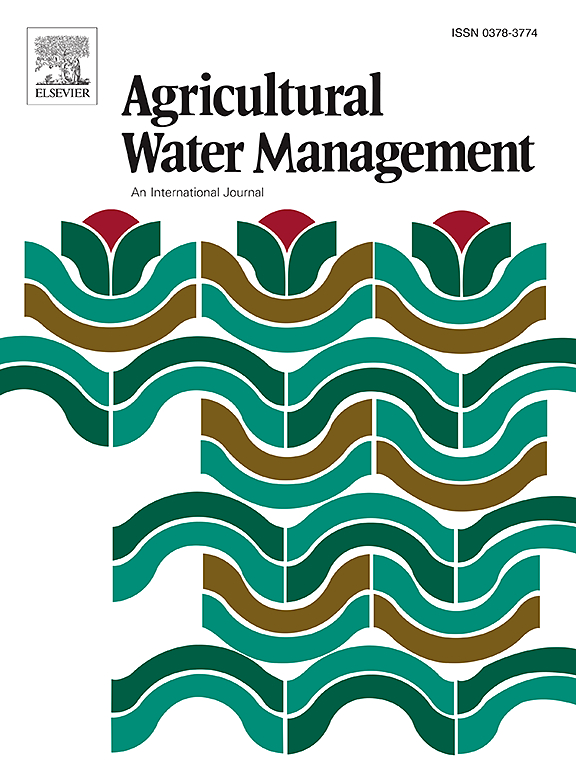Development and performance evaluation of novel jet self-cleaning for screen filters in drip irrigation systems: More efficient, water-saving, and cleaner
IF 5.9
1区 农林科学
Q1 AGRONOMY
引用次数: 0
Abstract
Challenges persist in the effectiveness of self-cleaning screen filters, encompassing issues such as facile clogging, prolonged cleaning duration, and filter deformation, significantly impeding their functionality within drip irrigation systems. A comprehensive investigation into cleaning methodologies and filter structures becomes imperative to address these concerns. This study integrated jet-cleaning technology, a widely adopted industrial practice, into the self-cleaning regimen of filters, and jet parameters (nozzle diameter, incident pressure, and nozzle diffusion angle) were investigated for jet cleaning. Based on optimal parameters (Incident pressure of 0.3 Mpa, nozzle diameter of 3 mm, and nozzle diffusion angle of 80°), a novel jet self-cleaning screen filter (JSSF) was designed, and its hydraulic performance and self-cleaning performance were scrutinized through physical experiments and theoretical analyses. Remarkably, the influence of cleaning pressure during self-cleaning surpassed that of inlet sediment content. With increasing cleaning pressure, sewage discharge duration decreased, accompanied by enhanced discharge cleanliness. Meanwhile, the formula for the sewage discharge time and cleanliness was derived and the calculated results matched the experimental results. This innovative filter exhibited a discharge water consumption at least 90 % lower than conventional market-available screen filters. The main findings furnished valuable insights, fostering the application and evolution of water jet cleaning technology in screen filters for drip irrigation systems.
求助全文
约1分钟内获得全文
求助全文
来源期刊

Agricultural Water Management
农林科学-农艺学
CiteScore
12.10
自引率
14.90%
发文量
648
审稿时长
4.9 months
期刊介绍:
Agricultural Water Management publishes papers of international significance relating to the science, economics, and policy of agricultural water management. In all cases, manuscripts must address implications and provide insight regarding agricultural water management.
 求助内容:
求助内容: 应助结果提醒方式:
应助结果提醒方式:


